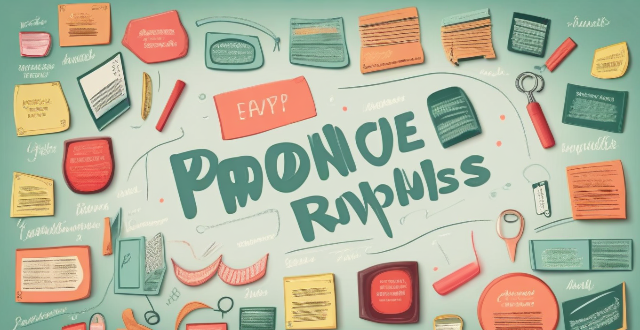The text provides tips on how to avoid impulse buying and stick to a shopping list. It emphasizes the importance of identifying needs, categorizing the list, setting a budget, not shopping when hungry, using cash instead of cards, avoiding window shopping, and practicing self-control. By following these steps, one can make conscious decisions about purchases and avoid overspending and clutter in the home.

How to Avoid Impulse Buying and Stick to Your Shopping List
Introduction
Impulse buying can be tempting, but it often leads to overspending and clutter in your home. To avoid this, it's important to stick to your shopping list and make conscious decisions about what you truly need. Here are some tips to help you avoid impulse buying:
Create a Well-Planned Shopping List
1. Identify Your Needs
Before creating your shopping list, take some time to identify your needs. This will help you focus on what you actually require and avoid unnecessary purchases. Consider the following:
* What items do you currently have in stock?
* What items are running low or about to expire?
* What items are essential for daily life or upcoming events?
2. Categorize Your List
Organize your shopping list into categories such as groceries, household items, personal care, etc. This will make it easier to navigate the store and ensure that you don't miss any important items.
3. Set a Budget
Determine how much money you can afford to spend on each category of your shopping list. This will help you prioritize your purchases and avoid overspending.
Stick to Your Shopping List
1. Don't Shop When Hungry
Shopping when hungry can lead to impulse buying, especially for food items. Make sure to eat before heading to the store to avoid temptation.
2. Use Cash Instead of Cards
Using cash instead of cards can help you stick to your budget and avoid overspending. It's easier to keep track of how much money you're spending when you see the cash leaving your wallet.
3. Avoid Window Shopping
Window shopping can lead to impulse buying, especially if you come across something you like. Stick to your shopping list and avoid browsing through stores or online marketplaces unless absolutely necessary.
4. Practice Self-Control
If you find yourself tempted by an item not on your shopping list, practice self-control and remind yourself why it's not necessary. Ask yourself if you really need the item or if it's just a fleeting desire.
Conclusion
By creating a well-planned shopping list, setting a budget, and practicing self-control, you can avoid impulse buying and stick to your shopping list. Remember that every purchase should be a conscious decision based on your needs and financial situation.